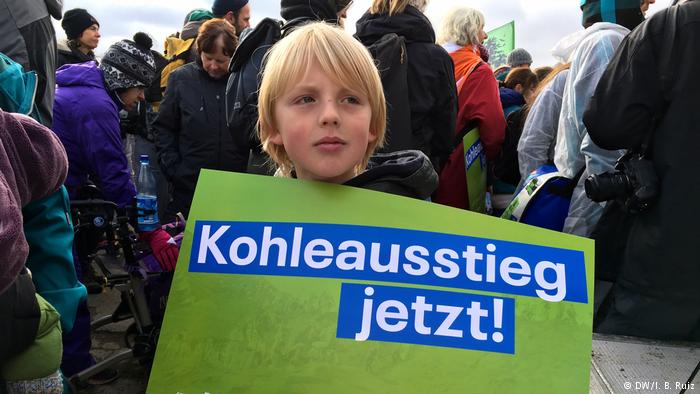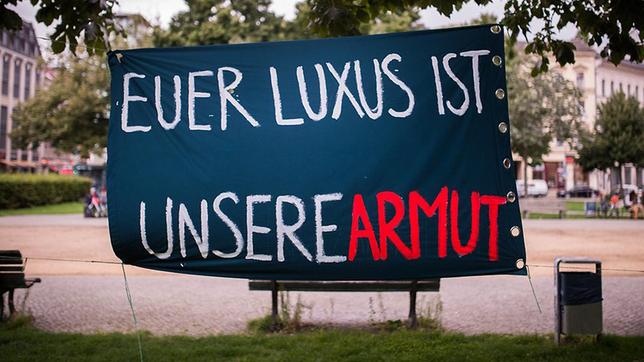Ron Lare
November 21, 2018
Where is the real progress in Germany?
Political reporting on Germany should still be seen in the context of the Oct. 13 march of 240,00 in Berlin against attacks on immigrants (as well as for other social justice causes). Before an update on elections and political parties in the state of Hesse, here is a reminder of some real action by real people.

The Oct. 13 Berlin march came following right-wing thuggery in the streets of the city of Chemnitz, an outrage inspired by the far-right Alternative for Germany (AfD) party and their fellow movement, PEGIDA (Patriotic Europeans Against the Islamization of the West). Given the US and German population sizes, the Berlin march following Chemnitz was equivalent of a million people marching in Washington, D.C., following Charlottesville.
There are more signs of life, including rebellion of Social Democrat (SPD) youth who know where their party came from historically; environmental action to stop coal and save forests; various union strikes; and pressure for higher minimum pay and job security. These present openings for Die Linke and Aufstehen (Rise Up). International Viewpoint covers such developments.
In Hesse, big gains for the Greens and semi-fascist AfD, modest gains for the far left Die Linke
On Oct. 28, elections in Hesse paralleled those on Oct. 14 in Bavaria. The Greens and far right AfD did a lot better than before. On the far left, Die Linke gained slightly in the popular vote while increasing representation in the legislature from 6 to 9 seats — much better than in Bavaria.
In Hesse, the Greens’ gains balanced the decline in votes for their governing coalition partners, the CDU (Christian Democrats, Chancellor Angela Merkel’s national party). Thus, the CDU-Green coalition can continue governing Hesse with a one-seat majority, but could add a partner.
| Party | Color | 2018 results | Change | Seats | Change |
|---|---|---|---|---|---|
| CDU | Black | 27.0% | -11.3% | 40 | -7 |
| SPD | Red | 19.8% | -10.9% | 29 | -8 |
| Greens | Green | 19.8% | +8.7% | 29 | +16 |
| AfD | Blue | 13.1% | +9.0% | 19 | +19 |
| FDP | Yellow | 7.5% | +2.5% | 11 | +5 |
| Die Linke | Purple * | 6.3% | +1.1% | 9 | +3 |
| Other | 6.5% | +0.9% |
Merkel responded to the decline of her CDU by ruling out another run for CDU national parliament fraction leader this December. She aims to remain Chancellor until 2021 federal elections (contrary to traditional unification of the Chancellor position and party leadership). In the contest to succeed Merkel as CDU leader, she is neutral, but her sometime protégé Annegret Kramp-Karrenbauer is a leading contender.
The Greens’ progressive come-on is blunted by their willingness to enter conservative coalitions, as in Hesse and nationally. On the other hand, many Green voters are sincerely motivated by their progressive goals around environment and immigration. The pro-business liberal FDP has ruled out a “Jamaican flag” coalition (by party colors, FDP-Greens-CDU = Yellow-Green-Black).
The SPD and CDU in Hesse tend to blame their parties’ coalition in Berlin for their regional decline.
CSU gets voters’ message, distances itself a bit from AfD
Meanwhile back in Bavaria, voters’ have seen an impact from the election there two weeks earlier. Christian Social Union (CSU) leader Horst Seehofer’s domestic security minister, Hans-Georg Maassen, had already been reassigned for denying that fascists beat immigrants in Chemnitz, adding to his history of far-right sympathies. Then on Nov. 5, Seehofer suspended Maassen for saying there is a “radical leftist” element in the SPD. Seehofer had heard voters’ message: Moderate CSU rhetoric — or find no coalition chair to sit in when we stop the music.
Predictably, the AfD defended Maassen’s red-baiting, as they did his Chemnitz-denial. AfD’s message boils down to: “If you coalition with Commies, why not Nazis?” For now, this further isolates the AfD from governmental power. In parliament, all other parties reject its vision of Germany overrun by immigrants. Not that all these agree — a Die Linke speaker in parliament said the governing coalition has prepared the way for the rise of the AfD. The AfD remains a real threat.
International fight over an AfD speaker
Recently, AfD leader Alice Weidel turned down an invitation to speak at a University of Oxford debating society in London — after a mass mobilization campaign sprang up against her, including over 250 Oxford students from Germany who signed a petition against her.
Weidel, unlike Richard Spencer in the US, withdrew without a fight partly because the AfD wants acceptance as a governing coalition partner. Yet the AfD want to keep their appeal to voters who include a Nazi element.
Left and movements still contend with “centrist hammerlock”
I interviewed a leftist activist in Germany for this article. He described a “centrist hammerlock” on German politics. Voters desert the parties of the “center” represented by the national Grand Coalition government of CDU and SPD. These voters go either to the Greens, far left (Die Linke), far right (AfD), or business-conservative (FDP). But center coalitions reassemble as the Greens, SPD and CDU, and possibly the FDP maintain or form coalitions.
Some members of both Die Linke and AfD want above all to make their parties centrist enough to be seen as regierungsfähig (“capable of governing”) in the eyes of voters and potential partners.
These center realignments ignore what the interviewed activist identifies as the elephant in the room: growing income and wealth inequality in Germany. Sahra Wagenknecht of Die Linke and Aufstehen could be describing my city, Detroit, in pointing to Germans who need three jobs to survive.
The Greens’ compromises blunt, for example, the political impact of environmental mobilizations such as the heroic direct action to save the Hambach forest from coal development. An International Viewpoint article on that struggle is here
As in the US, falling unemployment but rising oppression
German unemployment is at its lowest since reunification. But as in the US, that is a poor indicator of wages and job security. The AfD uses this demagogically with workers. The Greens seem too taken with electoral success and the SPD too depressed at electoral failure, and both of them too enmeshed in coalitions with conservatives, to take on inequality. A Green leader proposed a guaranteed monthly income without a work requirement, but coalition partners quickly opposed that.
An overwhelmed NGO national food charity excluded immigrants in one city. The NGO’s national leadership acknowledged that this was wrong, but asked why a country as rich as Germany has so many in food lines. Even the national ARD news service headlines an article called “The Unfair Republic Favors the Rich and Disadvantages the Poor”.
Die Linke and the rest of the far left have not yet found a hearing for their answer to this.

